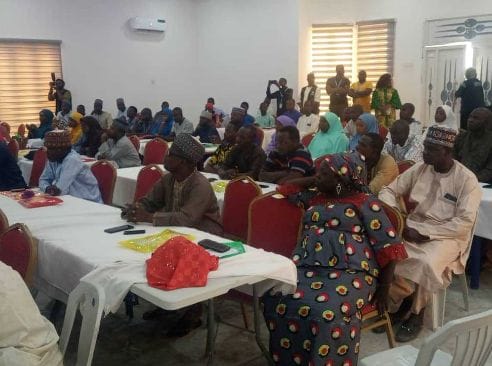The World Health Organisation (WHO) with support from the European Union has trained 240 Clinicians including medical doctors, nurses, midwives and community health extension workers on basic mental healthcare in 3 North eastern states of Adamawa, Borno and Yobe.
WHO Interim Emergency Manager for Northeast Health Emergencies Response, Dr. Kumshida Balami, who declared the training opened in Damaturu, the Yobe state capital, pledged to build capacity of healthcare workers in the Northeastern states as well as equip them with the necessary supports that would improve their health status.
“This particular training is in support of the ministries of health across the 3 states of Adamawa, Borno and Yobe. WHO is training about 240 Clinicians which include Medical Doctors, Nurses, Midwives and Community Health Extension Workers to be able to increase the access to mental healthcare at the primary healthcare level.
“As you can see the participants are so excited to contribute to their communities in terms of providing basic and counselling communication on stress disorder and be able to care for basic health issues like eclipse, seizure disorder, alcohol use and drug abuse including techniques in handling stigma in the community” she said.
On his part, the Executive Secretary of the Yobe State Primary Healthcare Management Board, Dr. Babagana Kundi Machina, represented by the Director Human Resource Management, Mohammed Kyari Usman, said the training organized by the WHO will no doubt strengthen the capacity of the healthcare workers in the state especially at the primary healthcare level.
According to him, the training which is also to discuss extensively on the mental health and psycho-social support as one of the pillars of supporting the lingering cerebrospinal meningitis in the state, is aimed to build the capacity of the healthcare workers to provide basic psycho-social support for the families of affected victims.
In Yobe state about 78 participants drawn across the 17 local government areas attended the workshop.




